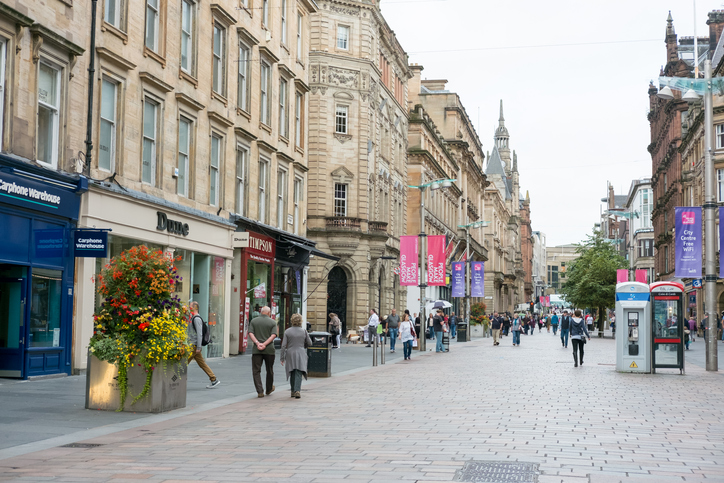Changes to the Use Classes Order 1987
The Town and Country Planning (Use Classes) (Amendment) (England) Regulations 2020 (the ‘2020 Regulations’) come into force on 1 September 2020 and here we briefly discuss the changes these Regulations are introducing.
The 2020 Regulations were made on 20 July 2020 and come into force on 1 September 2020. The 2020 Regulations significantly amend the Town and Country Planning (Use Classes Order) 1987 in the following ways:
- By revoking parts A & D of the Schedule to the Use Classes Order 1987 altogether. Part A currently contains existing use classes A1 to A5 (being uses including shops, cafes and takeaways). Part D contains existing use classes D1 and D2 (being non-residential institutions and assembly and leisure).
- By creating a new Schedule 2 which provides for the following new classes – Class E (Commercial, business and services), Class F.1 (learning and non-residential institutions) and Class F.2 (local community).
- By introducing new sui generis uses.
The new Class E will cover uses (or part uses) for all or any of the following purposes:
- The display or retail sale of good (other than hot food), principally to visiting members of the public (formerly A1).
- The sale of food and drink principally to visiting members of the public where consumption of that food and drink is mostly undertaken on the premises (formerly A3).
- The provision of the following kinds of services principally to visiting members of the public (all formerly A2):
- financial services;
- professional services (other than health or medical services); or
- any other services which it is appropriate to provide in a commercial, business or service locality.
- Indoor sport, recreation or fitness, not involving motorised vehicles or firearms principally to visiting members of the public (formerly D2(e)).
- The provision of medical or health services, principally to visiting members of the public, except the use of premises attached to the residence of the consultant or practitioner (formerly D1(a)).
- A creche, day nursery or day centre, not including a residential use, principally to visiting members of the public (formerly D1(b)).
- For:
- an office to carry out any operational or administrative functions (formerly B1(a));
- the research and development of products or processes (formally B1(b)); or
- any industrial process (formerly B1(c)),
- being a use which can be carried out in any residential area without detriment to the amenity of that area by reason of noise, vibration, smell, fumes, smoke, soot, ash, dust or grit.
As a result, any building or land which is used within Class A1 (Shops), Class A2 (financial and professional services), Class A3 (restaurants and cafés) and Class B1 (business) as at 31 August 2020 will be treated on or after 1 September 2020 as falling within this new Class E.
The New Class F.1 (learning and non-residential institutions) and Class F.2 (local community) replace Class D1 (non-residential institutions) and Class D2 (assembly and leisure) respectively.
Class F.1 will therefore include any use (not including residential use):
- For the provision of education.
- For the display of works of art (otherwise than for sale or hire).
- As a museum.
- As a public library or public reading room.
- As a public hall or exhibition hall.
- For, or in connection with, public worship or religious instruction.
- As a law court.
Class F.2 will include use as:
- A shop mostly selling essential goods, including food, to visiting members of the public in circumstances where:
- the shop’s premises cover an area not more than 280 metres square; and
- there is no other such facility within a 1,000-metre radius of the shop’s location.
- A hall or meeting place for the principal use of the local community.
- An area or place for outdoor sport or recreation (not involving motorised vehicles or firearms).
- An indoor or outdoor swimming pool or skating rink.
Finally, the following uses are from 1st September 2020 to be sui generis uses (being a class of their own):
- A public house, wine bar or drinking establishment (formerly Class A4).
- A drinking establishment with expanded food provision (formerly a mixed use of Class A4/A3).
- A hot food takeaway for the sale of hot food where consumption of that food is mostly undertaken off the premises (formerly Class A5).
- A venue for live music performance.
- A cinema, concert hall, bingo hall or dance hall (all formerly Class D2).
The above new sui generis uses are crucial to note as generally sui generis uses cannot be changed to any other use (including another sui generis use) without express planning permission.
As a result of these changes, a change of use between, for example, a retail shop and a restaurant or between a bank or building society (or other kind of office) to a crèche, day nursery or gym, all of which now fall within Use Class E, will not constitute development and so will not require planning permission. Further, whilst changes between these classes might previously have been considered ‘permitted development’ under the General Permitted Development Order, those permitted development rights will no longer be required and so any restrictions or limitations relating to the use of such permitted development rights will also no longer apply.
These changes, therefore, have real potential to change the face of a lot of high streets and other localities, allowing them to adapt quickly to the needs and demands of both customers and businesses within a locality.
It is worth noting that for the period from 1 September 2020 to 31 July 2021, any reference to the uses or use classes specified in the Town and Country Planning (General Permitted Development) (England) Order 2015 or in prior approval applications or Article 4 Directions are to be read as references to the use classes which were specified in the Use Classes Order 1987 on 31 August 2020 (i.e., before the 2020 Regulations came into force).
Finally, for any planning permissions or reserved matters approvals submitted prior to 1 September 2020 these will continue to be determined by reference to the use classes specified in the Use Classes Order 1987 as it applied before the 2020 Regulations came into force.

